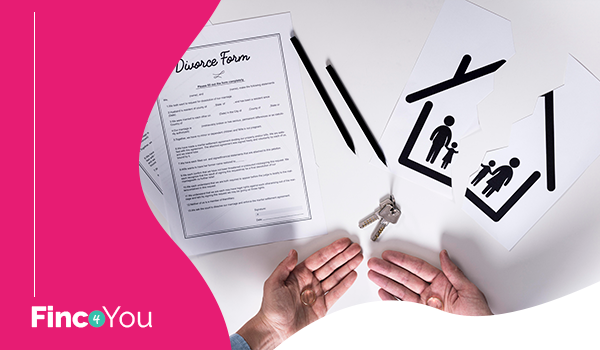How about unlocking debt settlement, avoiding fraud, and legitimate assistance? Learn the main tips and warnings in this article. Learn more.

Dealing with debt can be overwhelming, especially for those struggling to meet financial obligations. Unfortunately, the rise of debt settlement scams has made it challenging to distinguish legitimate companies from fraudulent ones.
If you’re considering debt settlement, it’s crucial to learn how to identify scams and find trustworthy assistance. In this post, we’ll provide valuable tips to help you navigate the debt settlement process, ensuring you receive genuine help. We’ll discuss warning signs of scams and provide a checklist of questions to ask potential debt companies, empowering you to make informed decisions.
Understanding the Pros and Cons of Debt Settlement
Debt settlement presents both risks and benefits, making it important to weigh them before proceeding. Here are key considerations:
1. Negotiation: offers the opportunity to negotiate with creditors, reducing the total amount owed. This can significantly ease the debt burden for individuals struggling to keep up with payments.
2. Speedy Solution: Compared to alternatives like bankruptcy, debt can provide a faster resolution. However, it’s crucial to recognize potential risks involved.
3. Negative Impact on Credit: Engaging in debt settlement can negatively affect credit scores as missed payments and settlements are reported to credit bureaus.
4. Scam Prevalence: Unscrupulous organizations take advantage of vulnerable individuals seeking debt relief. They may make unrealistic promises, charge excessive upfront fees, or fail to deliver on their commitments. To mitigate these risks, thorough research is necessary. Seek reputable and trustworthy debt settlement companies with a proven track record. Additionally, consulting qualified financial advisors or credit counseling agencies can provide tailored guidance.
Identifying Debt Settlement Scams
Recognizing debt settlement scams is vital to protect yourself from fraudulent practices and secure genuine assistance. Here are key indicators of scams:
1. Unrealistic Promises: Be cautious of companies promising to eliminate all your debt or guaranteeing a specific reduction percentage. Genuine debt settlement companies cannot make such guarantees due to the uniqueness of each case and various factors involved.
2. Upfront Fees: Exercise caution if a company requests substantial upfront fees before providing any services. Legitimate companies typically charge fees based on a percentage of the settled debt, not upfront charges.
3. Lack of Transparency: Reputable debt settlement companies are transparent about their services, fees, and potential risks. Beware of companies avoiding clear information or evading your questions.
4. Pressure Tactics: Scammers often use high-pressure tactics to rush you into quick decisions. Legitimate companies allow time for consideration and don’t push you to sign contracts.
5. Lack of Accreditation or Licensing: Verify the credentials of any debt settlement company you’re considering. Legitimate companies should be accredited by recognized organizations and licensed to operate in your state.
6. Poor Communication: Scammers may exhibit unprofessional behavior such as avoiding calls or emails, providing inconsistent information, or failing to update you on progress. Effective communication is crucial during debt settlement.
7. Lack of Legal Compliance: Ensure that the debt settlement company complies with all legal requirements and regulations set by the Consumer Financial Protection Bureau (CFPB) and relevant authorities. Unlicensed or non-compliant companies are more likely to engage in fraudulent activities.
By staying vigilant and recognizing these warning signs, you can protect yourself from debt settlement scams. Thoroughly research and verify the credibility and legitimacy of any company or individual offering debt settlement services before entering agreements or providing personal information.
Key Questions to Ask Debt Settlement Companies

When considering a debt settlement program, asking the right questions ensures informed decision-making and helps avoid scams. Here are important questions to ask:
1. What fees are involved?
Inquire about upfront fees or monthly charges. Legitimate debt settlement companies typically charge fees based on the settled debt amount, not upfront charges.
2. How long is the program duration?
Understand the timeline involved, typically lasting two to four years depending on your debt amount and financial situation. Be cautious of programs promising quick fixes or unrealistic timelines.
3. Will you stop making payments to my creditors?
Debt settlement may require temporarily stopping payments to creditors. Understand the impact on your credit score and if the company has a plan to handle potential legal actions from creditors.
4. Can you guarantee specific results?
Be wary of companies guaranteeing a specific percentage of debt reduction or promising to eliminate all debts. Debt outcomes depend on creditors’ willingness to negotiate and your financial circumstances. Reputable companies provide realistic expectations, not unrealistic guarantees.
5. Are you a certified debt settlement company?
Verify if the program provider is certified by reputable organizations such as the International Association of Professional Debt Arbitrators (IAPDA). Certification ensures adherence to industry standards and ethical practices.
6. What are the potential risks and consequences ?
Gain a clear understanding of potential risks, such as credit score impact, tax implications, and the possibility of legal actions by creditors. Trustworthy program providers will provide an overview of these consequences.
Exploring Alternative Options
Before committing to debt settlement, explore alternative options that may better suit your financial situation and goals. Consider the following alternatives:
1. Debt Consolidation: Combine multiple debts into a single loan with a lower interest rate, simplifying payments and potentially reducing overall debt costs. This option is particularly useful for high-interest credit card debts.
2. Credit Counseling: Seek guidance from credit counseling services to manage debt effectively. They assist in creating budgets, negotiating lower interest rates with creditors, and developing personalized debt repayment plans. Credit counselors also provide educational resources to improve financial literacy.
3. Debt Management Plans: Negotiate structured repayment plans with creditors through a credit counseling agency. You make a single monthly payment to the agency, which distributes funds to your creditors. This simplifies payments and may lead to lower interest rates.
4. Bankruptcy: Although seen as a last resort, bankruptcy offers a fresh start for individuals overwhelmed by debt. Consult a bankruptcy attorney to understand implications and determine if it’s the right option. Bankruptcy can discharge certain debts and provide relief from aggressive creditor actions.
Remember, each person’s financial situation is unique, and what works for one may not work for another. Thoroughly evaluate options, seek professional advice, and consider the long-term implications of each alternative.
Final Thoughts
When dealing with debt, caution and proactivity are essential in seeking genuine assistance and avoiding scams. By following the steps and tips outlined in this post, you can protect yourself, make informed decisions, and effectively manage your debt.


